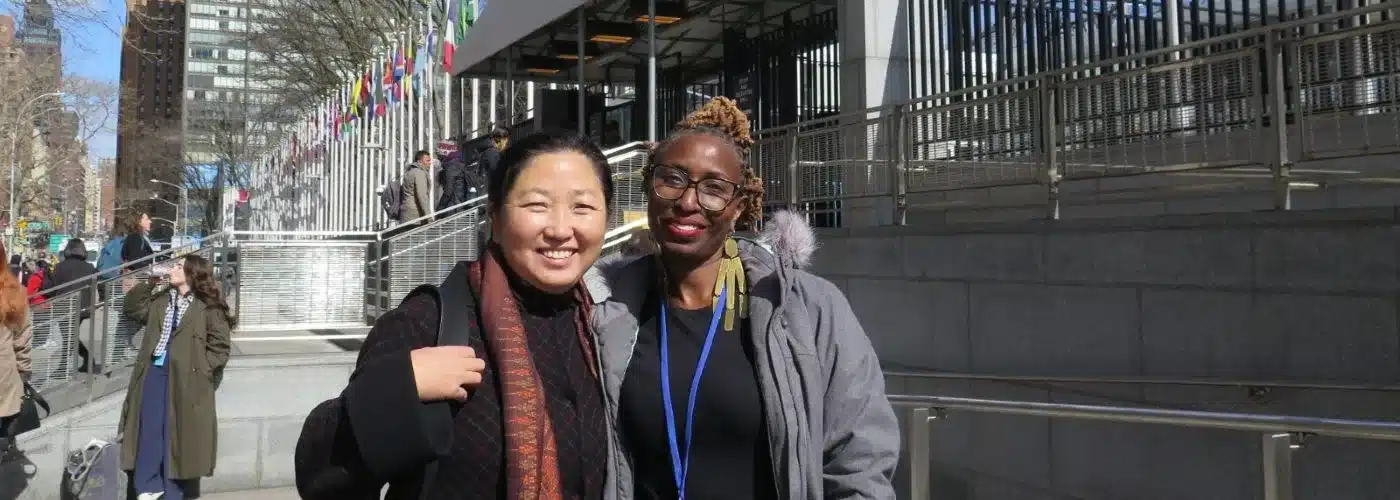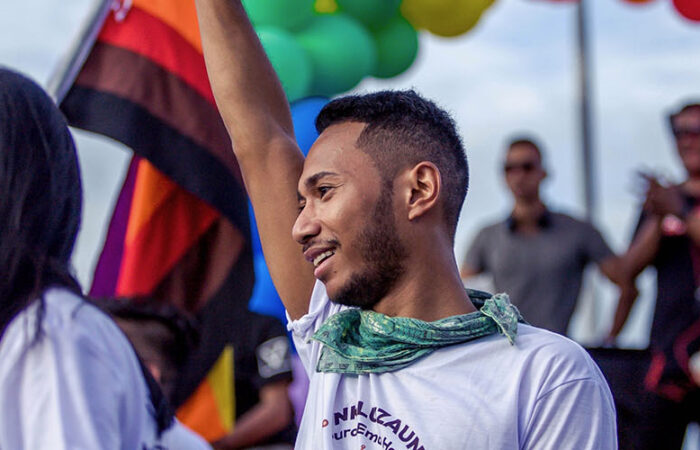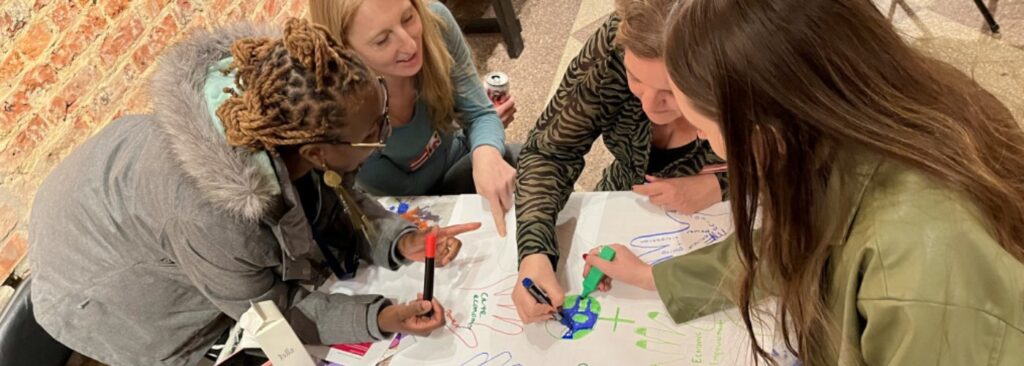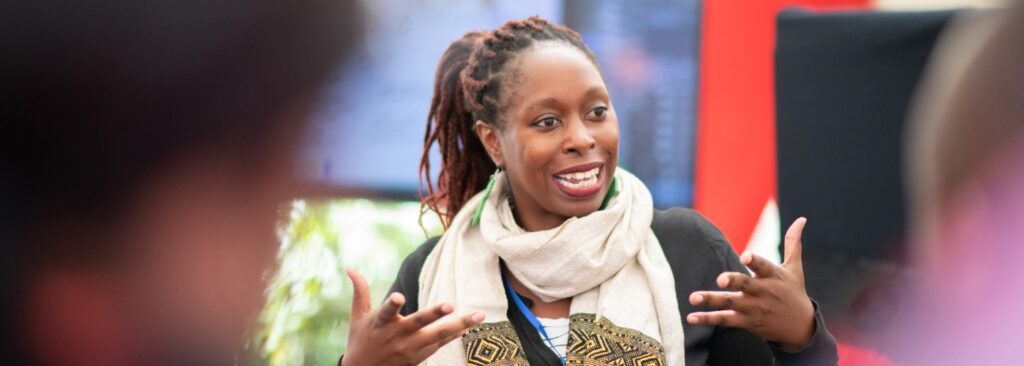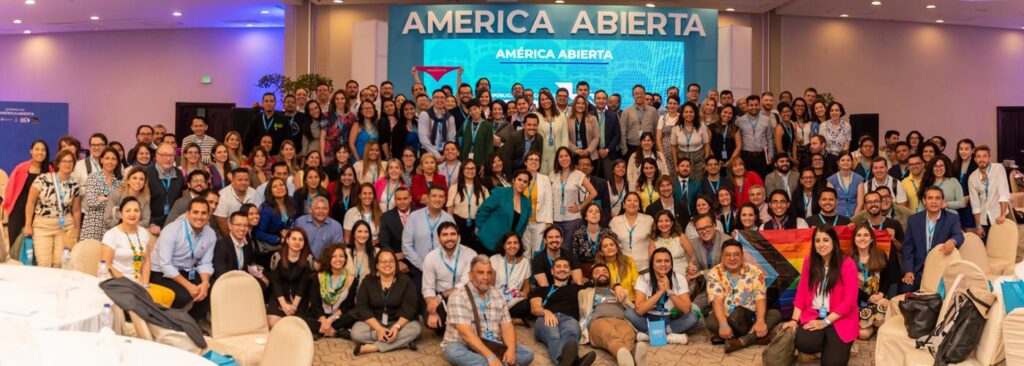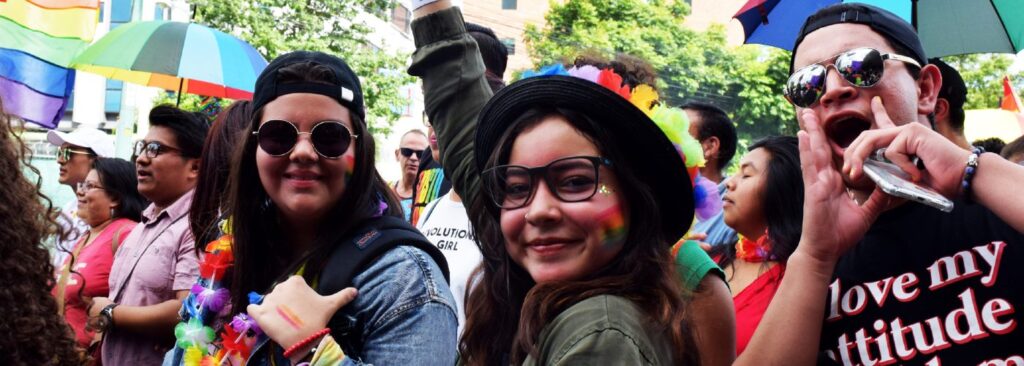Queering CSW67 in the concrete jungle of New York
March 17, 2023
By Saida Ali, Global Program Manager Free to be Me
Alicia Keys sings about New York as “the concrete jungle where dreams are made of,” and there is nothing you can’t do in New York. The theme of the 67th session of the UN Commission on the Status of Women is Innovation and technological change, and education in the digital age for achieving gender equality and the empowerment of all women and girls. As its conclusion nears, we are waiting with baited breath to see if our “pocketful of dreams” will come true, given the opportunities that the theme presents.
Representatives of Hivos’ Free to be Me program joined feminists and other lesbian, bisexual, trans and intersex rights defenders in New York to voice our concerns and support efforts to see a progressive outcome document. We collaborated through a transnational solidarity network, and movement building, to advocate for important issues related to gender equality and justice. Feminists and representatives of the LBTI community influenced discussions in different spaces throughout the CSW67 process.
Digital inequalities persist
There have been tremendous advances in science and technology since the UN Women’s Conference held in Beijing in 1995. And this year’s theme is particularly apt given that the whole world pivoted digitally because of Covid-19. But while we celebrate the important contributions made by women in science, technology, education and innovation, we must not forget that millions of people are still left behind in the use of digital technologies. Even when people agreed on the sustainable development goals in 2015, many were concerned about digital inequalities leaving a third of the world’s population with no access to the internet. Especially women, girls, and people in vulnerable situations, and two thirds of women in the least developed countries.
The economic cost of exclusion
This year’s CSW theme opens the door for all governments to commit to ensuring fuller inclusion of marginalized communities, including LBTI people, in technology and education. This also means thinking about the economic cost of excluding people of diverse sexual and gender identities. A cycle of poverty is created when LBTI children are pushed out of educational systems. LBTI women and girls have a right to an inclusive educational system and to benefit from how technology can improve their lives. Moreover, rapidly changing workplaces propelled by digital technology have made inclusive and safe online jobs of paramount importance.
“Digital technologies give LBTI people opportunities to access information, build communities, and engage in human rights organizing. But this also exposes them to hate crimes in online spaces and other technology-enabled offline spaces.”
Digital technologies and basic human rights
Digital technologies are a great tool for enhancing the learning experience in the classroom. But these days, LBTI children and young people often experience violence and harassment online – in addition to real life. If we want to ensure inclusive and equitable education for all, our educational systems must be free from all forms of discrimination and violence, online as well as offline.
Digital technologies are also a double-edged sword when it comes to registering personal data. They can facilitate civil birth registration and vital statistics records, but also completely exclude certain people through discriminatory registration systems. And without the proper registration you’re left without basic human rights like the right to education, access to social protection, and participation in public life, including voting.
It’s about more than gender-based discrimination
So far at CSW67, the concern is that the under-representation of women in the development, implementation and use of digital technologies leads to gender-based discrimination. But women and girls are not monolithic groups. We need to think about discrimination on the basis of sexual orientation, gender identity and expression, and sex characteristics for millions of female persons across the globe. Since this is about all women and girls, the focus should be on supporting them in all their diversities as CSW67 draws to a close.
-
Gender Equality, Diversity and Inclusion
How we support rightsholders in their efforts to claim the power, agency, and leadership necessary to drive change.
No one should be left behind in the digital economy
A people’s outcome document should recognize and seek inter-governmental support in ensuring that no one is left behind in the digital economy. For example, with national policies and budget allocations for equal and affordable access to digital skills and services. And by regulating service providers so that digital services don’t compound existing inequalities that restrict access for people in vulnerable situations. This includes people of diverse sexual and gender identities, those living in poverty, and in rural and urban low-income areas. Governments need to hold digital platforms and social media companies to account if their policies don’t forbid content that violates human rights.
Recognizing intersectional barriers to digital access
Part of what our LBTI network called for was the recognition that LBTI people and activists “face multiple and intersecting forms of discrimination and violence due to harmful social and cultural norms. Digital spaces hold both opportunities and threats for LBTI people in this context.” It’s important for the Commission to ensure the outcome of CSW67 maintains an “intersectional lens.” This is because exclusion and inequitable access to digital tools and transformations are structural barriers experienced by LBTI women, women with disabilities, rural women, and women belonging to ethnic minorities.
Digital technologies give LBTI people opportunities to access information, build communities, and engage in human rights organizing. But this also exposes them to hate crimes in online spaces and other technology-enabled offline spaces. In our LBTI network, we recognize that LBTI people and defenders face “threats of censorship, surveillance, harassment, intimidation, and cyberbullying in the digital environment. As a result, LBTI people are often excluded from online technologies, but remain one of the first targets of technology facilitated gender-based violence.”
The “pocketful of dreams” we are hoping to see
Basically, the recognition that exclusion is intersectional in nature, and concrete proposals for actions to address technology-facilitated gender-based violence against all women and girls. This means recognizing that LBTI people, too, are the targets of gender-based violence. At the end of the day, hate crimes perpetrated online play out offline on the bodies of LBTI persons.
The pressure is on CSW67 to get an agreement by the end of Friday, March 17. This is when we expect the Agreed Conclusions to be adopted by Member States. While I know the big lights in the “concrete jungle” might inspire many, at Hivos we are heading for a different kind of empire state of mind. We are looking beyond the lights and noise in the corridors of the UN. We know only too well that the actual work continues after CSW67 is over.

